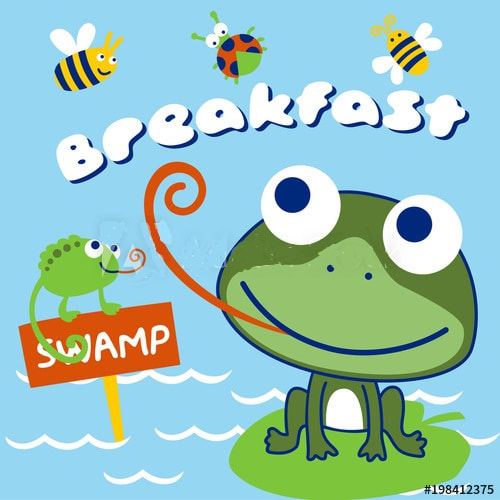A recent study has shown that "insect populations are declining precipitously worldwide due to pesticide use and other factors, with a potentially 'catastrophic' effect on the planet." WOW! This is serious business! The article went to further to say that as many as 40% of the insect species could become extinct within the next few decades. Insect biomass is declining by a staggering 2.5% a year, a rate that indicates widespread extinctions within a century, the report found. And in case you were wondering, insect biomass is the number of individual insects (about 10 quintillions). Insects probably have more biomass than any other animals. In addition to the 40% at risk of dying out, a third of species are endangered -- numbers that could cause the collapse of the planet's ecosystems with a devastating impact on life on Earth.
Okay, so those of you who aren't bug fans, you might ask, "Irwin, with 10 quintillion bugs on earth what difference would it make it be lost a bunch of them?" Here's why. A report co-authored by scientists from the universities of Sydney and Queensland, along with the China Academy of Agricultural Sciences looked at dozens of existing reports on insect decline published over the past three decades and examined the reasons behind the falling numbers to produce the alarming global picture. The study stressed the importance of insect life on interconnected ecosystems and the food chain. Bugs make up around 70% of all animal species. Insects have been at "the structural and functional base of many of the world's ecosystems since their rise ... almost 400 million years ago."
The key causes of bug decline are habitat loss and the increased use of fertilizers and pesticides. There is a 'bottom-up' effect of insect loss that is very serious. Scientists agree that the ecosystem has to be in balance, and that means starting with the bottom. IF it becomes out of whack, then all lives can be negatively impacted. You see, small critters rule the world! One study last year found that flying insect populations in German nature preserves declined by 75% over the 27-year study. This shows that insects are declining even in areas that are not inhabited by humans!
Species higher up on the food chain that rely on bugs will also suffer the consequences. The pollination of crops and plants will also suffer harm. In just the USA, "ecosystem services provided by wild insects have been estimated at $57 billion annually. Some 80% of wild plants use insects for pollination while 60% of birds rely on insects as a food source, according to the study. Sands said an immediate danger of the insect decline was the loss of insectivorous birds and the risk of larger birds turning from eating insects to eating each other." YIKES! In Australia, birds who are running out of insect food are already turning on each other. This will, scientists warn, become a global phenomenon. And birds are the only ones who'll suffer. With the rapid decline in insect biomass, insect-eating frogs and lizards will be in serious jeopardy, too. Frogs are already declining quickly with over 200 species disappearing from earth since the 1970s.
Rapid and immediate action is needed to help save insects. "Because insects constitute the world's most abundant and (species-diverse) animal group and provide critical services within ecosystems, such events cannot be ignored and should prompt decisive action to avert a catastrophic collapse of nature's ecosystems," say the scientists from the Sydney and Queensland study. They suggest overhauling existing agricultural methods, "in particular a serious reduction in pesticide usage and its substitution with more sustainable, ecologically-based practices." That's a solution that we can all live with. Literally.
The conclusion is clear, I think, to everyone. Or should be. Unless humans change the way they produce food, insects will go down the path of extinction. And then where will we be?
I hope you'll join me back here tomorrow. February is Black History Month and to celebrate, I'll be taking a look at a few important Black inventors and their contributions to the world. Until then, I wish you PEACE.
PS. Please think about it, the next time you want to kill a bug. It could be my lunch your squashing. I'm just saying....

 RSS Feed
RSS Feed